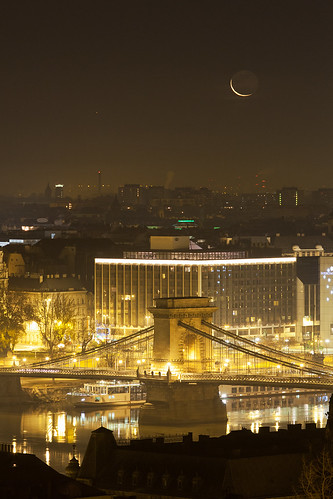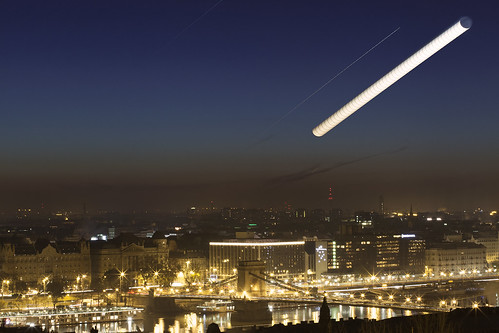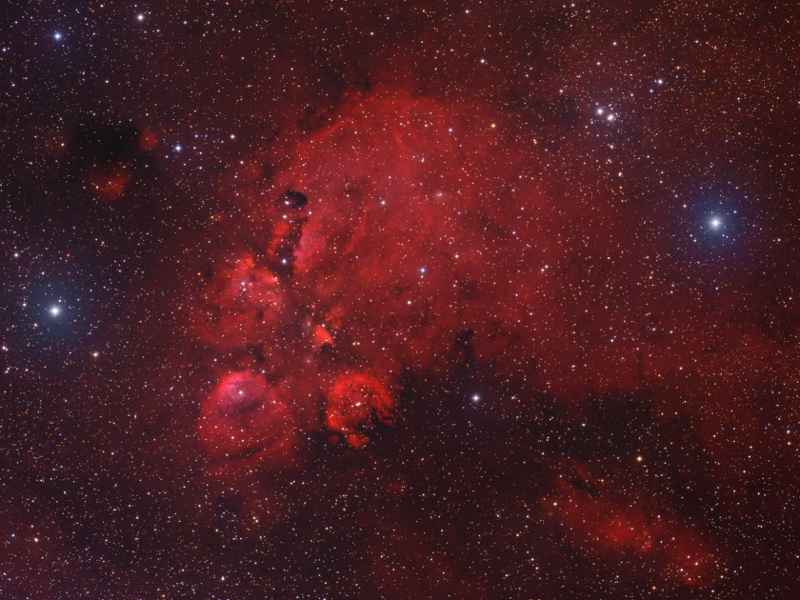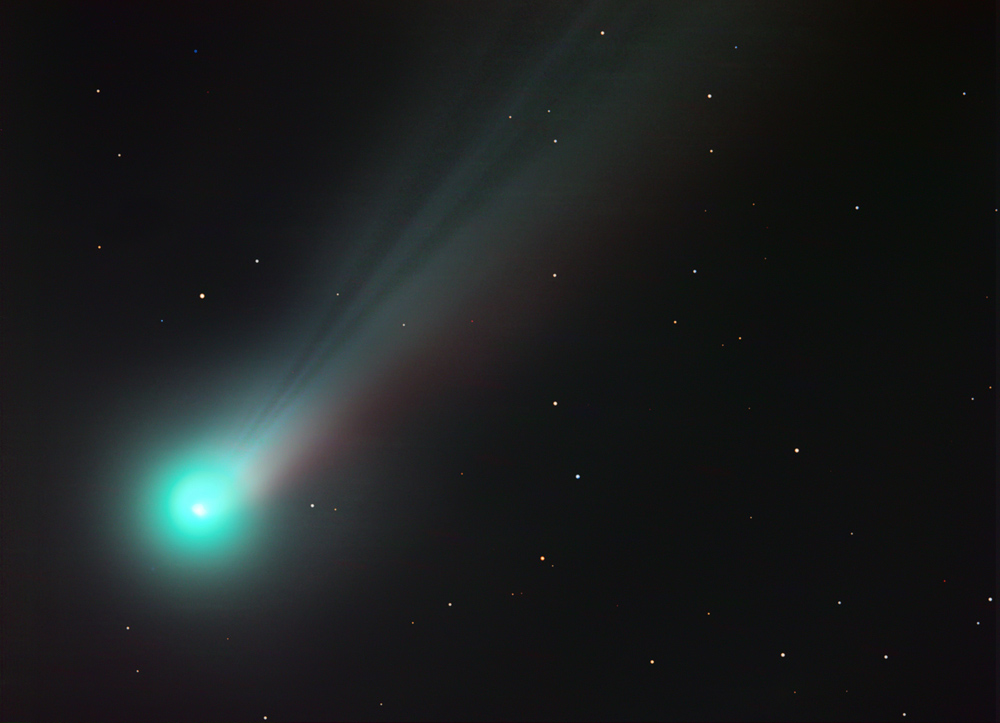Submissions: 2013 December
Submissions: 2013 December
__________________________________________________________________________________________________
Please post your images here.
Please see this thread before posting images; posting images demonstrates your agreement with
the possible uses for your image.
If hotlinking to an image, please ensure it is under 400K.
Hotlinks to images over 400K slow down the thread too much and will be disabled.
Thank you!
_________________________________________________________________________________________________
<- Previous submissions
[c]«« Discuss Anything in Astronomy «» Visit The Asterisk Main Page «» See Introductory Astonomy Lectures »»
«« Introduce Yourself «» Please Read the Rules »»[/c]
Please post your images here.
Please see this thread before posting images; posting images demonstrates your agreement with
the possible uses for your image.
If hotlinking to an image, please ensure it is under 400K.
Hotlinks to images over 400K slow down the thread too much and will be disabled.
Thank you!
_________________________________________________________________________________________________
<- Previous submissions
[c]«« Discuss Anything in Astronomy «» Visit The Asterisk Main Page «» See Introductory Astonomy Lectures »»
«« Introduce Yourself «» Please Read the Rules »»[/c]
A closed mouth gathers no foot.
Re: Submissions: 2013 December
Cat's Paw Nebula NGC 6334
Copyright: Marcin Paciorek http://www.astromarcin.pl
More information and full image: http://astromarcin.pl/pages/ngc6334.html
.
Copyright: Marcin Paciorek http://www.astromarcin.pl
More information and full image: http://astromarcin.pl/pages/ngc6334.html
.
C/2013 R1 Lovejoy
Hi,
latest high resolution image of the comet Lovejoy.
510/2280 Corrected Dall Khirkam
László Francsics
www.ptes.hu
ptes.astrophotography@gmail.com
latest high resolution image of the comet Lovejoy.
510/2280 Corrected Dall Khirkam
László Francsics
www.ptes.hu
ptes.astrophotography@gmail.com
Re: Submissions: 2013 December
A Fiery Drama of Star Birth and Death
Image credits: ESO
More about: http://www.eso.org/public/news/eso1348/ Mach 1000 Shock Wave Lights Supernova Remnant
Image credits: X-ray: NASA/CXC/Rutgers/K. Eriksen et al.; Optical (starry background): DSS
More about: http://www.cfa.harvard.edu/news/2013-28 Klyuchevskoy Eruption
Copyrights: Marc Szeglat
More about: http://epod.usra.edu/blog/2013/11/klyuc ... ption.html Green and Blue Flashes behind Kitt Peak
Copyrights: Robert Sparks The Barringer Meteor Crater
Copyrights: Bob Franke WaterWorld: A Full Circle Rainbow
Copyrights: Francis Audet
Image credits: ESO
More about: http://www.eso.org/public/news/eso1348/ Mach 1000 Shock Wave Lights Supernova Remnant
Image credits: X-ray: NASA/CXC/Rutgers/K. Eriksen et al.; Optical (starry background): DSS
More about: http://www.cfa.harvard.edu/news/2013-28 Klyuchevskoy Eruption
Copyrights: Marc Szeglat
More about: http://epod.usra.edu/blog/2013/11/klyuc ... ption.html Green and Blue Flashes behind Kitt Peak
Copyrights: Robert Sparks The Barringer Meteor Crater
Copyrights: Bob Franke WaterWorld: A Full Circle Rainbow
Copyrights: Francis Audet
Re: Submissions: 2013 December
Sunrise over hikers on crater summit
Copyrights: Alex Dzierba, Jr. Star trails and Venus trail
Copyrights: Vince Farnsworth See you soon ISON!
Copyrights: José J. Chambó Comet ISON
Copyrights: Atish Aman C/2013 R1 (Lovejoy)-M51
Copyrights: Pierre-Alain Borgeaud ISON and Encke
Copyrights: Carlos Vazquez Comet Lovejoy passes M63 (Nov 25th.)
Copyrights: Damian Peach
Copyrights: Alex Dzierba, Jr. Star trails and Venus trail
Copyrights: Vince Farnsworth See you soon ISON!
Copyrights: José J. Chambó Comet ISON
Copyrights: Atish Aman C/2013 R1 (Lovejoy)-M51
Copyrights: Pierre-Alain Borgeaud ISON and Encke
Copyrights: Carlos Vazquez Comet Lovejoy passes M63 (Nov 25th.)
Copyrights: Damian Peach
- geckzilla
- Ocular Digitator
- Posts: 9180
- Joined: Wed Sep 12, 2007 12:42 pm
- Location: Modesto, CA
- Contact:
Re: Submissions: 2013 December
Decided to go ahead and cross-post this from the Flickr group. I thought it came out surprisingly well.
Seyfert's Sextet
Credit: Hubble Legacy Archive, processing by Judy Schmidt

Seyfert's Sextet
Credit: Hubble Legacy Archive, processing by Judy Schmidt

Just call me "geck" because "zilla" is like a last name.
Re: Submissions: 2013 December
NGC2070 - Tarantula Nebula
http://cosmicphotos.com
Copyright: Jason Jennings

Wide field showing NGC2070 location in LMC also available here.
Thanks
http://cosmicphotos.com
Copyright: Jason Jennings

Wide field showing NGC2070 location in LMC also available here.
Thanks
Re: Submissions: 2013 December
sun and bush. polarizing filter
Last edited by Rothkko on Sun Dec 01, 2013 9:32 pm, edited 1 time in total.
- mexhunter
- Science Officer
- Posts: 467
- Joined: Tue Apr 27, 2010 1:41 pm
- AKA: César Cantú
- Location: Monterrey, Mexico.
- Contact:
Re: Submissions: 2013 December
Last edited by mexhunter on Mon Dec 02, 2013 1:12 am, edited 1 time in total.
I come to learn and to have fun.
- mexhunter
- Science Officer
- Posts: 467
- Joined: Tue Apr 27, 2010 1:41 pm
- AKA: César Cantú
- Location: Monterrey, Mexico.
- Contact:
Re: Submissions: 2013 December
I come to learn and to have fun.
Re: Submissions: 2013 December
Sh2-240 SNR taken 11-1-2013 using a 3" F/4 astrograph
Copyright: Dave Erickson
Website:http://www.hbastro.com
Website:http://www.hbastro.com
-
vanamonde81
- Science Officer
- Posts: 143
- Joined: Fri Apr 12, 2013 7:46 am
Re: Submissions: 2013 December
Crescent Moon rising over Budapest
Copyright: György Soponyai
I photographed the rising Moon and Saturn from Fishermans Bastion situated on Buda Castle Hill.
In the foreground the Eastern pillar of the Chain Bridge is visible as standing in river Danube.

http://www.flickr.com/photos/vanamonde81/11146764573/
Photo details: 2013.12.01. Budapest, Hungary
Canon EOS 5D Mk II + Canon EF 200/F2.8, 1s, F5.6, ISO640
Moonrise Without Comet ISON
Copyright: György Soponyai
After photographing the rising Moon and Saturn I created a startrails picture of the waking city and the phenomena of the Eastern sky. Since September I was planning to take this image using these settings and foreground: if comet ISON had survived its encounter with the Sun, it should have been visible at the left side of the picture. ISON is lost, however I kept it's empty place at the left side of the picture. Just use your imagination..

http://www.flickr.com/photos/vanamonde81/11149040234
Photo details: 2013.12.01. Budapest, Hungary
Canon EOS 5D Mk II + Canon EF 100/F2.8, 50 x 37s, F29, ISO640
Conjunction of Moon, Saturn and Mercury
Copyright: György Soponyai
The bank of rive Danube in Budapest is a part of UNESCO World Heritage. This scene acts as foreground of the Moon-Saturn-Mercury conjunction on the Eastern sky.

http://www.flickr.com/photos/vanamonde81/11169508834
Photo details: 2013.12.01. Budapest, Hungary
Canon EOS 5D Mark II + Canon EF 50/F1.4, 5s, F8, ISO400
Copyright: György Soponyai
I photographed the rising Moon and Saturn from Fishermans Bastion situated on Buda Castle Hill.
In the foreground the Eastern pillar of the Chain Bridge is visible as standing in river Danube.

http://www.flickr.com/photos/vanamonde81/11146764573/
Photo details: 2013.12.01. Budapest, Hungary
Canon EOS 5D Mk II + Canon EF 200/F2.8, 1s, F5.6, ISO640
Moonrise Without Comet ISON
Copyright: György Soponyai
After photographing the rising Moon and Saturn I created a startrails picture of the waking city and the phenomena of the Eastern sky. Since September I was planning to take this image using these settings and foreground: if comet ISON had survived its encounter with the Sun, it should have been visible at the left side of the picture. ISON is lost, however I kept it's empty place at the left side of the picture. Just use your imagination..

http://www.flickr.com/photos/vanamonde81/11149040234
Photo details: 2013.12.01. Budapest, Hungary
Canon EOS 5D Mk II + Canon EF 100/F2.8, 50 x 37s, F29, ISO640
Conjunction of Moon, Saturn and Mercury
Copyright: György Soponyai
The bank of rive Danube in Budapest is a part of UNESCO World Heritage. This scene acts as foreground of the Moon-Saturn-Mercury conjunction on the Eastern sky.

http://www.flickr.com/photos/vanamonde81/11169508834
Photo details: 2013.12.01. Budapest, Hungary
Canon EOS 5D Mark II + Canon EF 50/F1.4, 5s, F8, ISO400
-
starsurfer
- Stellar Cartographer
- Posts: 5409
- Joined: Thu Mar 15, 2012 7:25 pm
Re: Submissions: 2013 December
Yet another incredibly deep amateur image! I don't think I've ever seen the HII region to the left in an amateur image. I know that it is part of a very obscure catalogue of HII regions, I'll find out its name when I have time later.hbastro wrote:Sh2-240 SNR taken 11-1-2013 using a 3" F/4 astrograph Copyright: Dave Erickson
Website:http://www.hbastro.com
-
Meteocaravaca
- Asternaut
- Posts: 6
- Joined: Sun Nov 10, 2013 10:36 pm
Re: Submissions: 2013 December
Milky way over Stakes
Copyright: Álvaro Pérez Alonso y Jose Manuel Pérez Alonso
Website: http://www.meteocaravaca.es

High. resolution: https://dl.dropboxusercontent.com/u/499 ... Lactea.jpg
Copyright: Álvaro Pérez Alonso y Jose Manuel Pérez Alonso
Website: http://www.meteocaravaca.es

High. resolution: https://dl.dropboxusercontent.com/u/499 ... Lactea.jpg
Re: Submissions: 2013 December
Object: Melotte 15 - 19 Nov 2013
Imaging by: David Kopacz
Processing by: Steven Marx
(SHO Hubble Palette)
Frames:
S-II 3nm: 28x1200
H-Alpha 3nm: 24x1200
O-III 3 nm: 27x1200
Integration: 26.3 hours
Click to view Original FULL scale image (1460x1467)
Imaging by: David Kopacz
Processing by: Steven Marx
(SHO Hubble Palette)
Frames:
S-II 3nm: 28x1200
H-Alpha 3nm: 24x1200
O-III 3 nm: 27x1200
Integration: 26.3 hours
Click to view Original FULL scale image (1460x1467)
Re: Submissions: 2013 December
Title: The center of the Heart
Object: Melotte 15 / IC1805
Copyright: Andrés del Pozo Prieto
Technical data:
Object: Melotte 15 / IC1805
Copyright: Andrés del Pozo Prieto
Technical data:
- When: 2013/11/28
- Where: Near Valladolid (Spain)
- Exposure: 6.75 hours
- Filters: H-alpha and O-III
- Full technical data at: http://www.astrobin.com/66637/
-
starsurfer
- Stellar Cartographer
- Posts: 5409
- Joined: Thu Mar 15, 2012 7:25 pm
Re: Submissions: 2013 December
The large nebula on the left is Du 77 in the neighbouring constellation of Auriga. The Du catalogue is very unknown and is a catalogue of 81 emission nebulae that was published in 1976 by R. Dubout-Crillon.starsurfer wrote:Yet another incredibly deep amateur image! I don't think I've ever seen the HII region to the left in an amateur image. I know that it is part of a very obscure catalogue of HII regions, I'll find out its name when I have time later.hbastro wrote:Sh2-240 SNR taken 11-1-2013 using a 3" F/4 astrograph Copyright: Dave Erickson
Website:http://www.hbastro.com
-
Infrared Vision
- Ensign
- Posts: 12
- Joined: Mon Sep 27, 2010 4:08 pm
Comet Lovejoy in High Resolution
Comet Lovejoy C/2013 R1
LRGB image. Data acquisition and credits:
URL: http://www.elfirmamento.com
Copyright: Manuel Fernández Regards,
Manuel
LRGB image. Data acquisition and credits:
URL: http://www.elfirmamento.com
Copyright: Manuel Fernández Regards,
Manuel
Re: Submissions: 2013 December
from surf city USA, thanks for the research Starsurfer, I framed the image to capture the two nebula together... Thanks for the responses.starsurfer wrote:The large nebula on the left is Du 77 in the neighbouring constellation of Auriga. The Du catalogue is very unknown and is a catalogue of 81 emission nebulae that was published in 1976 by R. Dubout-Crillon.starsurfer wrote:Yet another incredibly deep amateur image! I don't think I've ever seen the HII region to the left in an amateur image. I know that it is part of a very obscure catalogue of HII regions, I'll find out its name when I have time later.hbastro wrote:Sh2-240 SNR taken 11-1-2013 using a 3" F/4 astrograph Copyright: Dave Erickson
Website:http://www.hbastro.com
-
Bi2L
- Science Officer
- Posts: 103
- Joined: Tue Jul 19, 2011 11:24 am
- AKA: Bill Metallinos
- Location: Corfu, Greece
- Contact:
Re: Submissions: 2013 December
Hello, I've got in this capture hope you like it 
Shooting Star, Milkyway & Aggelokastro, Corfu
A dark New Moon night at the Castle of the Angels(Angelokastro) a Byzantine castle on the island of Corfu, our Galaxy Milkyway was on his glory you could even see the dark nebulas with naked eye and suddenly a bright Sporadic Meteor -2mag light up the sky, you can see the reflection on the Ionian Sea.
A meteor or "shooting star" is the visible streak of light from a meteoroid or micrometeoroid, heated and glowing from entering the Earth's atmosphere, as it sheds glowing material in its wake. Meteors typically occur in the mesosphere at altitudes between 76 km to 100 km (46–62 miles). The root word meteor comes from the Greek meteōros, meaning "suspended in the air".
Millions of meteors occur in the Earth's atmosphere daily. Most meteoroids that cause meteors are about the size of a pebble. Meteors may occur in showers, which arise when the Earth passes through a stream of debris left by a comet, or as "random" or "sporadic" meteors, not associated with a specific stream of space debris. A number of specific meteors have been observed, largely by members of the public and largely by accident, but with enough detail that orbits of the meteoroids producing the meteors have been calculated. All of the orbits passed through the asteroid belt. The atmospheric velocities of meteors result from the movement of Earth around the Sun at about 30 km/s (18 miles/second),the orbital speeds of meteoroids, and the gravity well of Earth.
Meteors become visible between about 75 to 120 km (34–70 miles) above the Earth. They usually disintegrate at altitudes of 50 to 95 km (31–51 miles). Meteors have roughly a fifty percent chance of a daylight (or near daylight) collision with the Earth. Most meteors are, however, observed at night, when darkness allows fainter objects to be recognised. For bodies with a size scale larger than (10 cm to several meters) meteor visibility is due to the atmospheric ram pressure (not friction) that heats the meteoroid so that it glows and creates a shining trail of gases and melted meteoroid particles. The gases include vaporized meteoroid material and atmospheric gases that heat up when the meteoroid passes through the atmosphere. Most meteors glow for about a second. A relatively small percentage of meteoroids hit the Earth's atmosphere and then pass out again: these are termed Earth-grazing fireballs (for example The Great Daylight 1972 Fireball). The visible light produced by a meteor may take on various hues, depending on the chemical composition of the meteoroid, and the speed of its movement through the atmosphere. As layers of the meteoroid abrade and ionize, the color of the light emitted may change according to the layering of minerals. Possible colors (and elements producing them) include:
Orange/yellow (sodium)
Yellow (iron)
Blue/green (copper)
Purple (potassium)
Red (silicate)
(text http://en.wikipedia.org/wiki/Meteoroid#Meteor)
Canon eos 30D
efs 17-55 is usm
17mm
f2.8
iso800
30sec
20 06 2012
Shooting Star, Milkyway & Aggelokastro, Corfu
A dark New Moon night at the Castle of the Angels(Angelokastro) a Byzantine castle on the island of Corfu, our Galaxy Milkyway was on his glory you could even see the dark nebulas with naked eye and suddenly a bright Sporadic Meteor -2mag light up the sky, you can see the reflection on the Ionian Sea.
A meteor or "shooting star" is the visible streak of light from a meteoroid or micrometeoroid, heated and glowing from entering the Earth's atmosphere, as it sheds glowing material in its wake. Meteors typically occur in the mesosphere at altitudes between 76 km to 100 km (46–62 miles). The root word meteor comes from the Greek meteōros, meaning "suspended in the air".
Millions of meteors occur in the Earth's atmosphere daily. Most meteoroids that cause meteors are about the size of a pebble. Meteors may occur in showers, which arise when the Earth passes through a stream of debris left by a comet, or as "random" or "sporadic" meteors, not associated with a specific stream of space debris. A number of specific meteors have been observed, largely by members of the public and largely by accident, but with enough detail that orbits of the meteoroids producing the meteors have been calculated. All of the orbits passed through the asteroid belt. The atmospheric velocities of meteors result from the movement of Earth around the Sun at about 30 km/s (18 miles/second),the orbital speeds of meteoroids, and the gravity well of Earth.
Meteors become visible between about 75 to 120 km (34–70 miles) above the Earth. They usually disintegrate at altitudes of 50 to 95 km (31–51 miles). Meteors have roughly a fifty percent chance of a daylight (or near daylight) collision with the Earth. Most meteors are, however, observed at night, when darkness allows fainter objects to be recognised. For bodies with a size scale larger than (10 cm to several meters) meteor visibility is due to the atmospheric ram pressure (not friction) that heats the meteoroid so that it glows and creates a shining trail of gases and melted meteoroid particles. The gases include vaporized meteoroid material and atmospheric gases that heat up when the meteoroid passes through the atmosphere. Most meteors glow for about a second. A relatively small percentage of meteoroids hit the Earth's atmosphere and then pass out again: these are termed Earth-grazing fireballs (for example The Great Daylight 1972 Fireball). The visible light produced by a meteor may take on various hues, depending on the chemical composition of the meteoroid, and the speed of its movement through the atmosphere. As layers of the meteoroid abrade and ionize, the color of the light emitted may change according to the layering of minerals. Possible colors (and elements producing them) include:
Orange/yellow (sodium)
Yellow (iron)
Blue/green (copper)
Purple (potassium)
Red (silicate)
(text http://en.wikipedia.org/wiki/Meteoroid#Meteor)
Canon eos 30D
efs 17-55 is usm
17mm
f2.8
iso800
30sec
20 06 2012
Re: Submissions: 2013 December
Gum 38a, Gum 38b (RCW 57, The Statue of Liberty) in Carina
http://www.irida-observatory.org
Copyright: [url=mailto://info@irida-observatory.org]Velimir Popov, Emil Ivanov[/url]
The RCW 57 complex (Rodgers, Campbell, & Whiteoak 1960) consists of several H II regions distributed over an area of -60' x 40' in Carina. The western and eastern parts were designated, respectively, 38a and 38b, in Gum's (1955) catalog. The fan-shaped complex Gum 38a contains several bright knots (NGC 3576, 3579, 3581, 3582, 3584, and 3586), which are embedded in a large system of diffuse emission, gas filaments, and dust patches. The central part of Gum 38b is NGC 3603, which designates also the rich star cluster embedded therein. Gum 38a and 38b are two idividual complexes of molecular clouds, at different radial velocities.
The images were taken in Namibia on May 2013 during our Southern Sky expedition.
Gum 38a: Ha - crop: Gum 38a: LHaRGOIIIB - crop: Gum 38a and Gum 38b: LHaRGOIIIB: More images with higher resolution, and information are avaliable HERE ...
Thank you for looking ...
http://www.irida-observatory.org
Copyright: [url=mailto://info@irida-observatory.org]Velimir Popov, Emil Ivanov[/url]
The RCW 57 complex (Rodgers, Campbell, & Whiteoak 1960) consists of several H II regions distributed over an area of -60' x 40' in Carina. The western and eastern parts were designated, respectively, 38a and 38b, in Gum's (1955) catalog. The fan-shaped complex Gum 38a contains several bright knots (NGC 3576, 3579, 3581, 3582, 3584, and 3586), which are embedded in a large system of diffuse emission, gas filaments, and dust patches. The central part of Gum 38b is NGC 3603, which designates also the rich star cluster embedded therein. Gum 38a and 38b are two idividual complexes of molecular clouds, at different radial velocities.
The images were taken in Namibia on May 2013 during our Southern Sky expedition.
Gum 38a: Ha - crop: Gum 38a: LHaRGOIIIB - crop: Gum 38a and Gum 38b: LHaRGOIIIB: More images with higher resolution, and information are avaliable HERE ...
Thank you for looking ...
-
Efrain Morales
- Commander
- Posts: 508
- Joined: Fri Oct 22, 2010 8:15 pm
- AKA: Jaicoa
- Location: Aguadilla, Puerto Rico
- Contact:
Comet Lovejoy C/2013 R1 - Montage
Comet Lovejoy C/2013 R1, Some sessions taken to make this simple montage from september - november.
-
Efrain Morales
- Commander
- Posts: 508
- Joined: Fri Oct 22, 2010 8:15 pm
- AKA: Jaicoa
- Location: Aguadilla, Puerto Rico
- Contact:
Jupiter, Oval Ba - December 3rd
Jupiter on December 3rd, 05:20ut. under above average condition but short lived the rain returned. Oval Ba (lower right) at the limb going to the dark side. (Equipment: LX200ACF 12 in. OTA, CGE mount, Flea3 Ccd, TeleVue 3x barlows, Astronomik RGB filter set. 55 sec. per channel.
- mexhunter
- Science Officer
- Posts: 467
- Joined: Tue Apr 27, 2010 1:41 pm
- AKA: César Cantú
- Location: Monterrey, Mexico.
- Contact:
Re: Submissions: 2013 December
Rosette Nebula is associated nebula or star cluster NGC2244.
Copyright: César Cantú
Copyright: César Cantú
I come to learn and to have fun.
-
astromazzo
- Ensign
- Posts: 42
- Joined: Sat Oct 09, 2010 3:03 am
Re: Submissions: 2013 December
CANON EF-L 200mm F/1.8 (4.3") ST-10XME 10 minutes LRGB bin 1x1 04DEC2013 04:30UT - By Dr Paolo Candy - Ci.A.O. Cimini Astronomical Observatory - Italy







